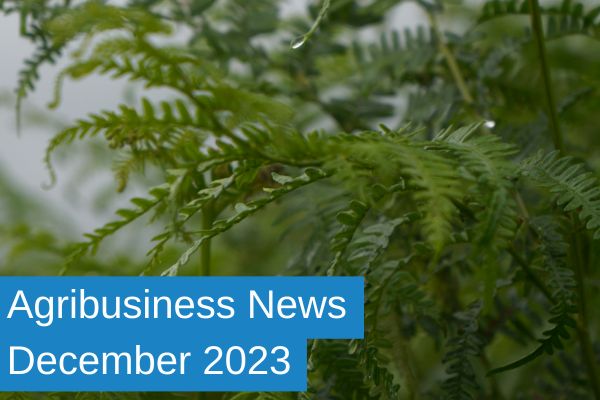Agribusiness News December 2023 – Policy Brief
30 November 2023Autumn Statement
National Insurance: From the 6th of January 2024, the employee national insurance rate is being cut form 12% to 10% for earnings between £12,570 and £50,270.
From April 2024, Class 2 self-employed national insurance contributions will be abolished.
From April 2024, Class 4 ‘paid on profits’ national insurance contributions will be reduced from 9% to 8% for earnings between £12,570 and £50,270.
State Pension: From April 2024, the state pension will rise by £17.35 per week to £221.20 per week. an increase of ~ £900 per annum.
National Living Wage: From April 2024, the national living wage will rise to £11.44 per hour for all employees aged 21 and above.
Trade Deals and Support Funding
Following on from the closure of the consultation period on the new Agriculture and Rural Communities (Scotland) Bill and cabinet reshuffle within the UK Government; Mairi Gougeon is keen to meet with the new Secretary of State for Environment, Food and Rural Affairs, Steve Barclay to ensure that lessons have been learned with regards negotiating trade deals in the post Brexit era and to discuss funding for Scotland’s Agricultural Reform Programme.
Storm Babet Support Funding
In addition to the RSABI support funding of £1,000 per family available to Scottish farming and crofting businesses affected by Storm Babet; the Scottish Government has announced support funding accessible through the seven affected local council authorities (Aberdeenshire, Angus, Perth & Kinross, Fife, South Lanarkshire, Highland and Moray).
Under the Bellwin Scheme, impacted local authorities will be allocated additional funding to enable them to provide flat rate grants of:
- £1,500 to people whose properties were most affected by flooding related to Storm Babet.
- £3,000 grants to businesses where there is evidence that ability to trade was severely impacted by flooding.
Local authorities now have four months from the date of the incident to make an interim claim and until eight months following the incident to make a final claim under the Scheme.
Farmers affected by severe flooding in Aberdeenshire, Angus, Perth & Kinross, Fife, and Moray, this autumn will be eligible to apply for grants of up to £30,000 to help repair man-made flood banks. The Scheme, expected to open this month will be administered by the Scottish Government. Further details will be made available on the Rural Payments and Services website.
The Next Generation & Women in Agriculture Practical Training Funds
The Scottish Government has announced £570,000 of joint funding to help young people, women and girls develop new agricultural skills to progress their careers and/or businesses in the Agricultural Sector.
For both training funds, training up to the value of £500 per course will be fully funded. Any training over the value of £500 per course will be considered and assessed on a case by case basis. Further information about both Training Funds is available on the Lantra Skills Hub
Tag Loss Survey
Given the importance of tags in the livestock sector, researchers from SRUC are exploring the whys and wherefores of ear tag losses in Scotland and are keen to hear the views of all livestock keepers. If you would like to take part, please click on this link: EarTags_in_Sheep_and_Cattle_in_Scotland_2nd_Wave (onlinesurveys.ac.uk)
Forestry – Asulox & Bracken Control
As Asulox can no longer be used as a means to control Bracken; the Forestry Grant Scheme rate for the mechanical and manual control of bracken has been increased from £225 to £275 per hectare.
Key dates

Sign up to the FAS newsletter
Receive updates on news, events and publications from Scotland’s Farm Advisory Service

